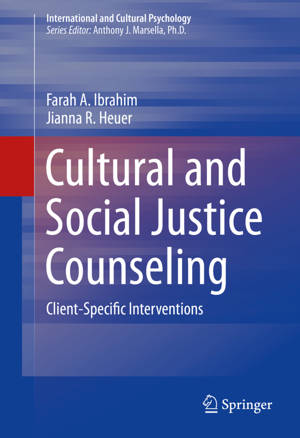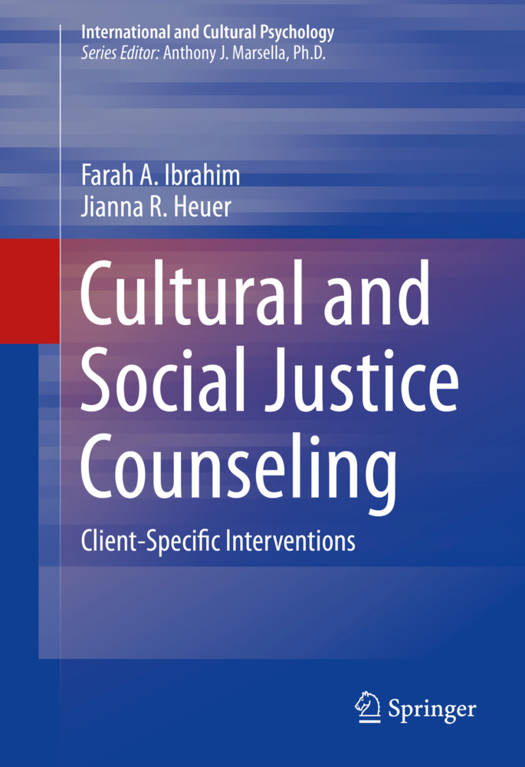
- Afhalen na 1 uur in een winkel met voorraad
- Gratis thuislevering in België
- Ruim aanbod met 7 miljoen producten
- Afhalen na 1 uur in een winkel met voorraad
- Gratis thuislevering in België
- Ruim aanbod met 7 miljoen producten
Cultural and Social Justice Counseling
Client-Specific Interventions
Farah A Ibrahim, Jianna R HeuerOmschrijving
This timely volume gives readers a robust framework and innovative tools for incorporating clients' unique cultural variables in counseling and therapy. Its chapters identify cultural, societal, and worldview-based contexts for understanding clients, from the relatively familiar (ethnicity, gender, age) to the less explored (migration status, social privilege, geographic environment). Diverse cases illustrate how cultural assessments contribute to building the therapeutic relationship and developing interventions that respect client individuality as well as group identity. In these pages, clinicians are offered effective strategies for conducting more relevant and meaningful therapy, resulting in better outcomes for client populations that have traditionally been marginalized and underserved. The appendices include the Scale to Assess Worldview(c) (Ibrahim & Kahn, 1984), The Acculturation Index(c) (Ibrahim, 2008), and the Cultural Identity Check List-Revised(c) (Ibrahim, 2007).
Among the topics covered:
- Cultural identity: components and assessment.
- Worldview: implications for culturally responsive and ethical practice.
- Understanding acculturation and its use in counseling and psychotherapy.
- Social justice variables critical for conducting counseling and psychotherapy.
- Immigrants: identity development and counseling issues.
- Designing interventions using the social justice and cultural responsiveness model.
Cultural and Social Justice Counseling is a profound source of knowledge for clinicians and students in mental health fields (counselors, psychologists, psychiatrists, psychiatric nurses, social workers) who are working with clients from diverse cultural backgrounds, including those working in international settings, with clients across cultures, and with sojourners to the US.
Specificaties
Betrokkenen
- Auteur(s):
- Uitgeverij:
Inhoud
- Aantal bladzijden:
- 256
- Taal:
- Engels
- Reeks:
Eigenschappen
- Productcode (EAN):
- 9783319180564
- Verschijningsdatum:
- 3/09/2015
- Uitvoering:
- Hardcover
- Formaat:
- Genaaid
- Afmetingen:
- 156 mm x 234 mm
- Gewicht:
- 576 g

Alleen bij Standaard Boekhandel
Beoordelingen
We publiceren alleen reviews die voldoen aan de voorwaarden voor reviews. Bekijk onze voorwaarden voor reviews.












